A Year On, Nomadland, Lithium and Thoughts of Home
Hi folks
Greetings from the sun folks, hope you’re well. This post has a few more random updates and thoughts from our spot down here in Southern Spain.
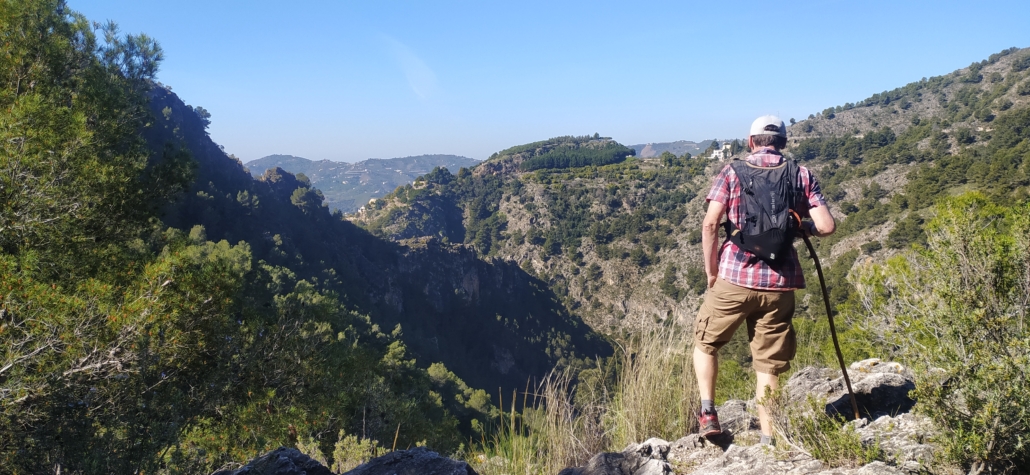
After about a week of rain and grey skies, recent days have been glorious here at Nerja on the Costa del Sol. Yesterday was our warmest winter day yet in the months we’ve been here, cranking all the way up to about 24°C, with wall to wall blue sky. The Factor 50, sunglasses and hat went on and I escaped into the hills while Ju went on a rampage cleaning Zagan. We’re just 100 miles north of Africa here and desert sand falls with the infrequent rain, adding a slight orange hue to the windscreen and table outside.
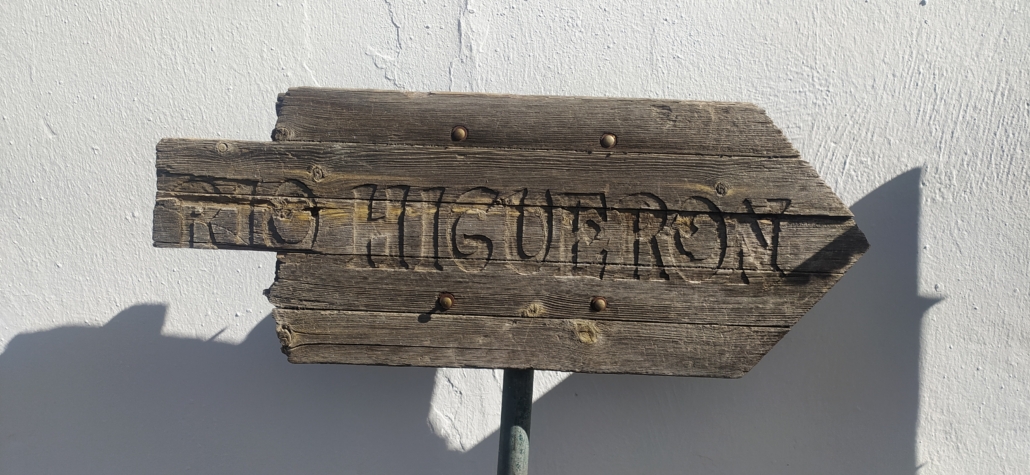
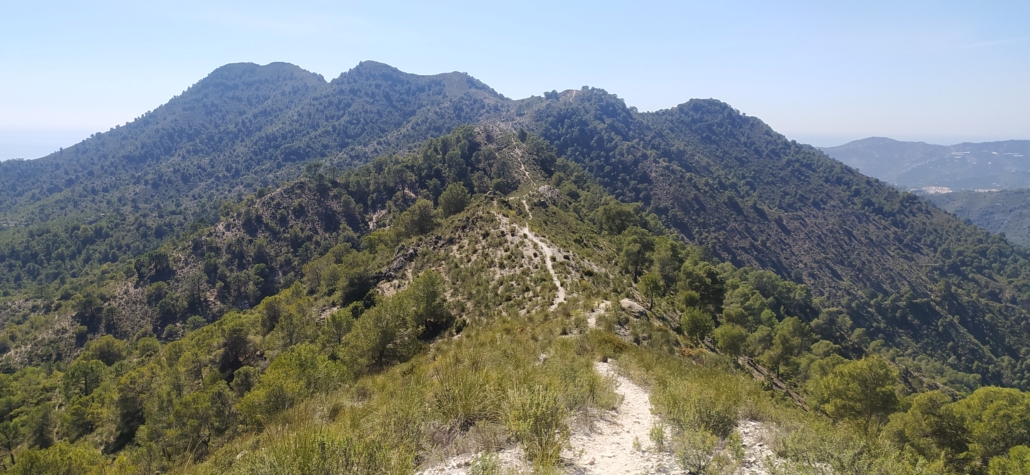
Neighbouring Torrox has a big sign alongside the road proclaiming it has the best climate in Europe and our experience of winter weather here has been very good, warm and mainly sunny with a few spells of overcast days, wind and rain here and there.
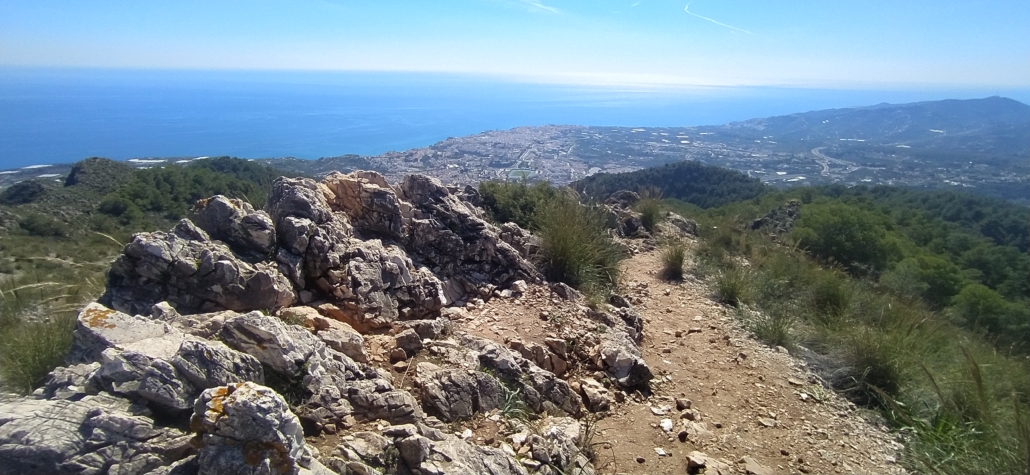
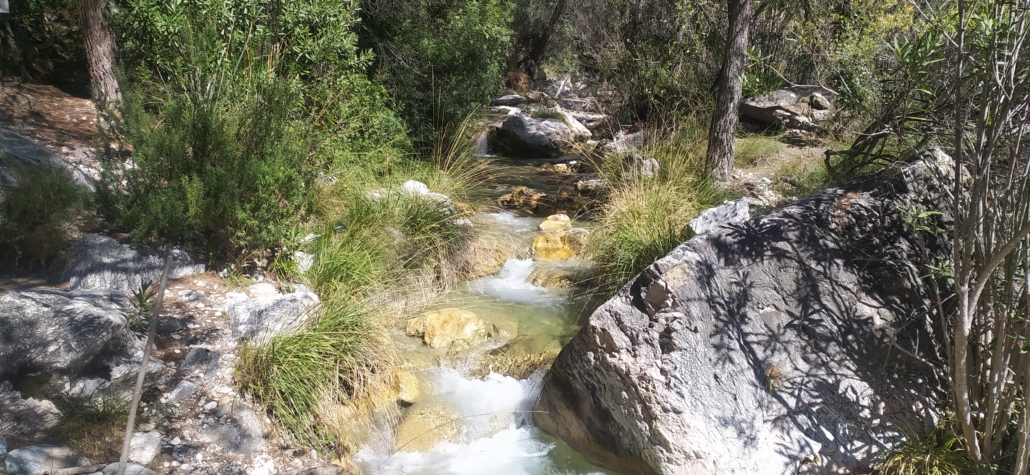
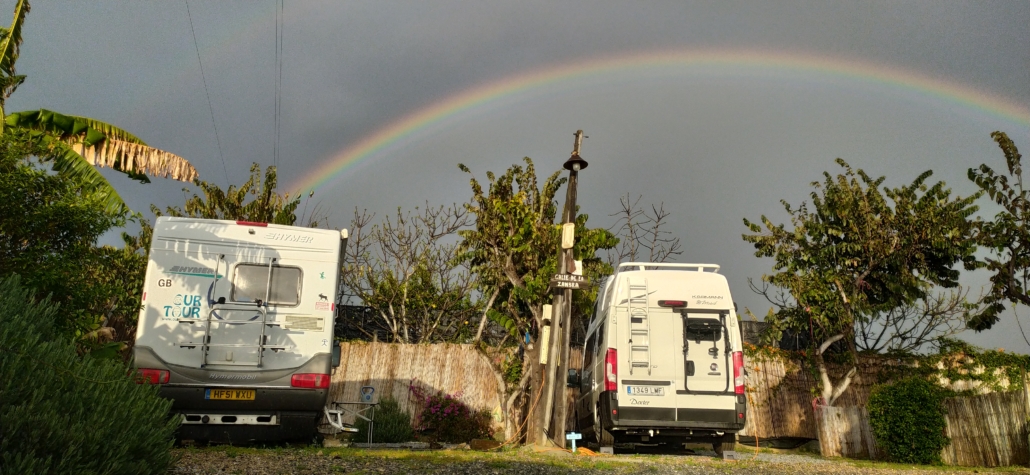
Pandemic Nerja
Along with the wonderful weather the COVID-19 figures have continued to bobble along the bottom of the graph. Only 4 people have tested positive in the town over the past 14 days. Nearby Frigiliana has had 0 positive tests in 14 days, as have several of the smaller municipalities around us. Over 300,000 of the Andalusian population have had both vaccine doses, and over 1m doses have been given in total (around 8.5m people live in Andalusia, so there’s quite some way to go yet).
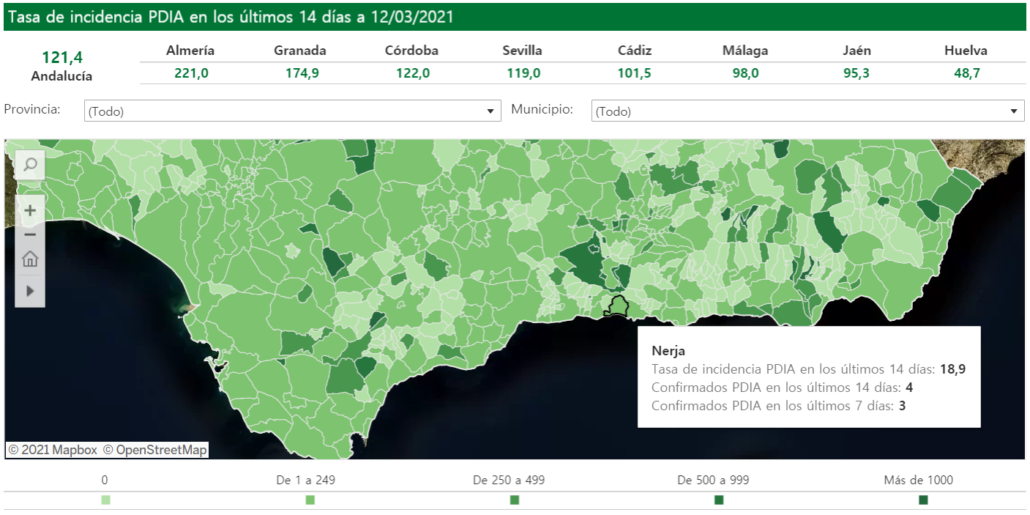
Chatting with friends and family back home, this all seems a little odd. The gyms, hairdressers, shops and schools have stayed open here this winter, as have the bars and restaurants, albeit with reduced capacity and early closing times. Life is far from normal I should add, the fact everyone has a mask on reminds of us that whenever we step off our pitch, but I suspect we’ve managed to miss the worst of this (hopefully) final lockdown by being here. In a way, the gamble has paid off, we had no idea when we came out in Oct 2020 whether we’d find ourselves confined to our pitch for months, and we haven’t. With no garden and a relatively small room to live in at home, we felt the risk worth taking for us, personally.
A Year On Since We Fled for Home
Tomorrow it will have been a full year since we turned tail and fled for home from Spain at the start of the pandemic. It’s a little embarrassing looking back, just how naive we were. We’d met Linda and Steve (thechouters.com) at Cadiz a few days before the world blew up (blog post here – this was the last time the world felt normal). They’d just come back from Morocco, which turned out to be great timing as thousands of others were stranded there for months when the Spain-Morocco border closed, and it still hasn’t re-opened. We chatted about the pandemic, which they were far more concerned about and prepared for than us. I recall we were focussed at the time on whether the half marathon in Malaga would go ahead later in March, ha!
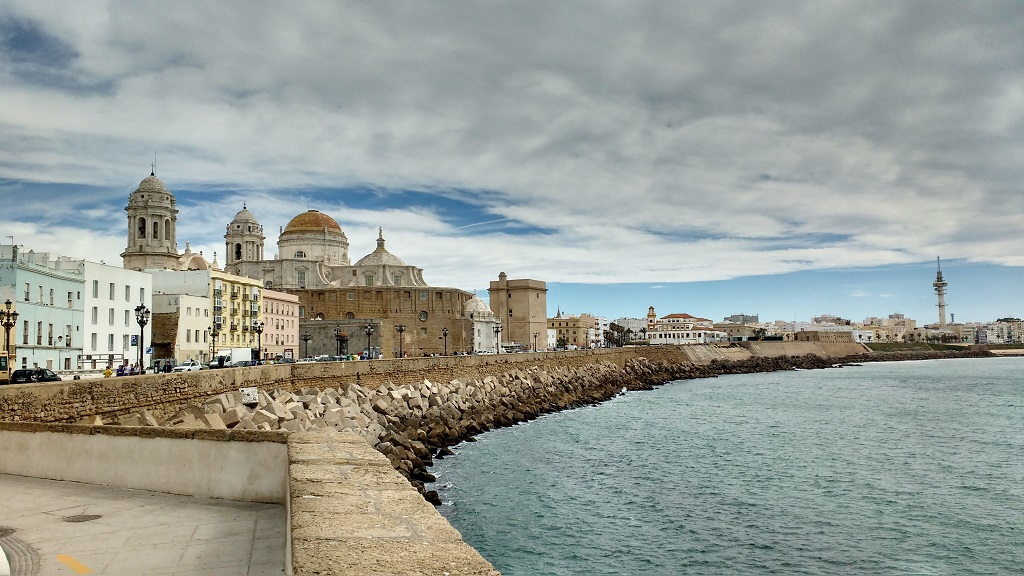
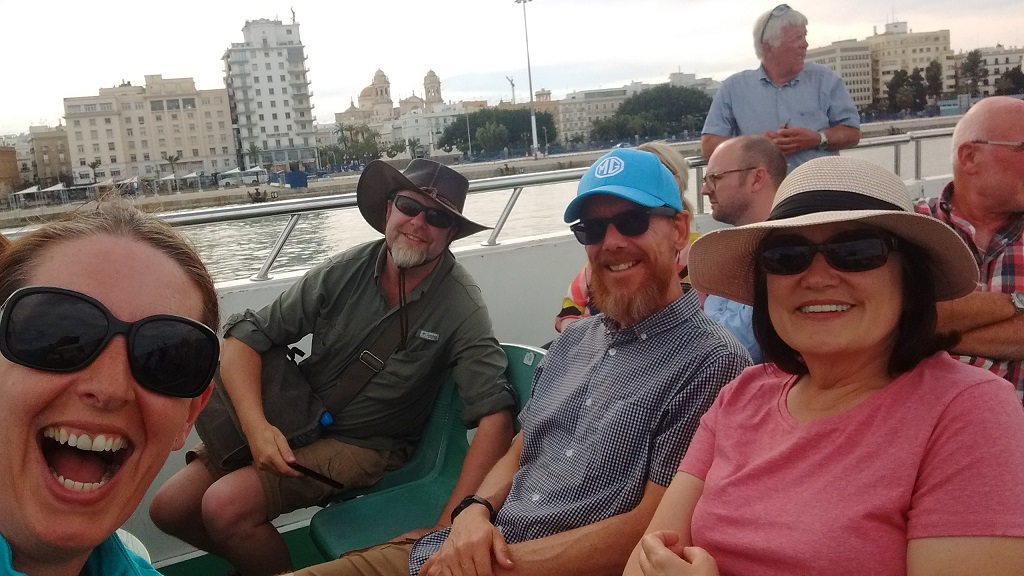
At the time we looked at stats for China’s COVID-19 numbers, and they seemed to have the whole thing under control in 3 weeks, which is what we were expecting to happen in Europe too. After receiving confirmation that the half marathon was postponed until November we decided to continue heading south, even further from the UK. Whoops. On the way south we got our first taste of panic in the local population with packed supermarkets, shelves emptied of food, trollies abandoned half full of food, staff looking bewildered. The marina aire in Barbate didn’t exactly look palatial but we had access to services and a supermarket, and figured we could sit it out there for a couple of weeks (having no clue that in reality that would mean weeks being confined to the van). We were completely blind as to what was about to hit us, but then so was most of the world, so I don’t suppose we feel too bad about that.
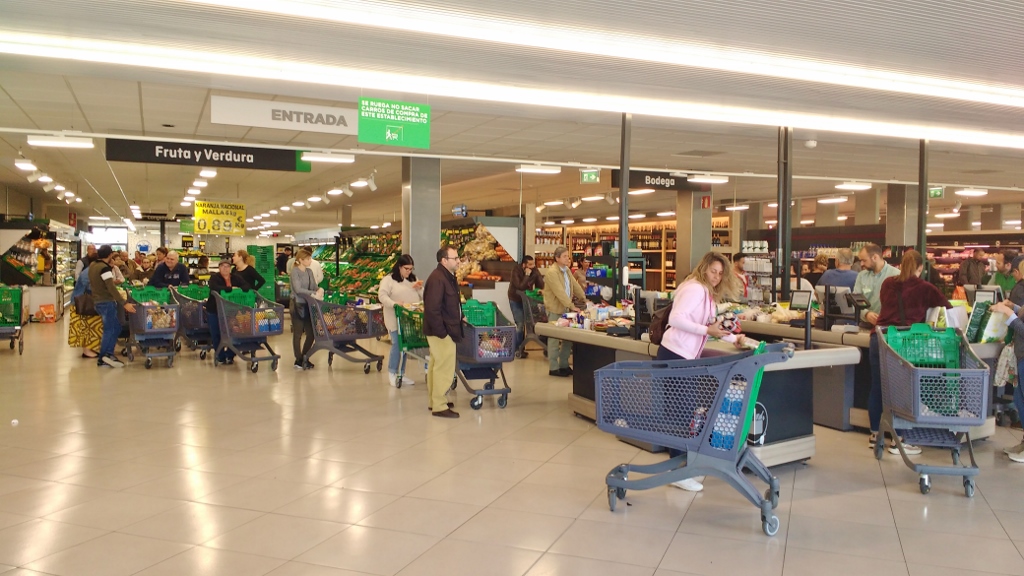
Some ‘youfs’ did us a favour on our first night at the marina aire, making a half-hearted attempt to nick the bikes in the early hours and then hitting the side of the van, breaking one of the side habitation windows (£500 to fix, ouch) and running off. That spooked us, and I started to fear social unrest was on the way, which spurred us into action to get home sharpish. A few days later we’d blasted across a continent and were home, wiped out, bewildered.
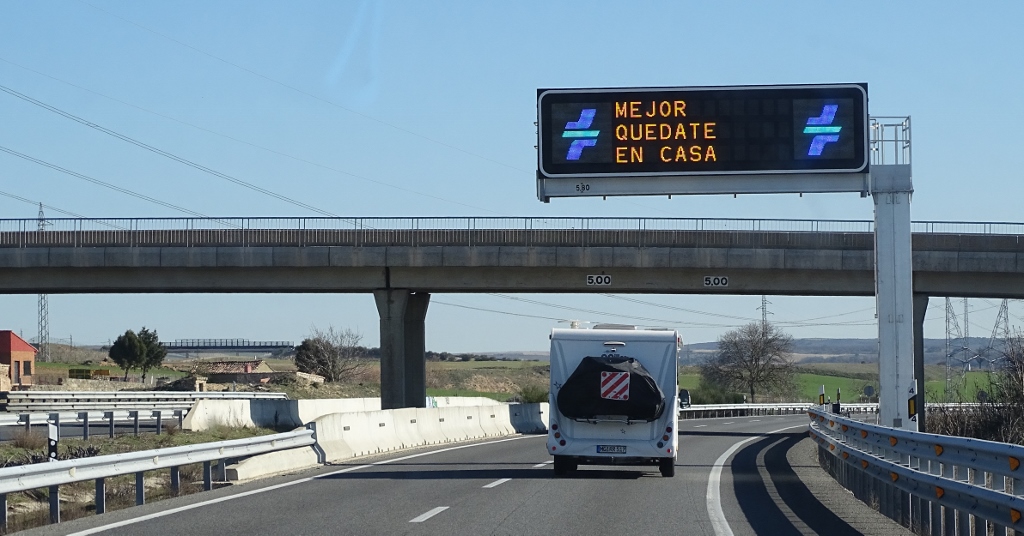
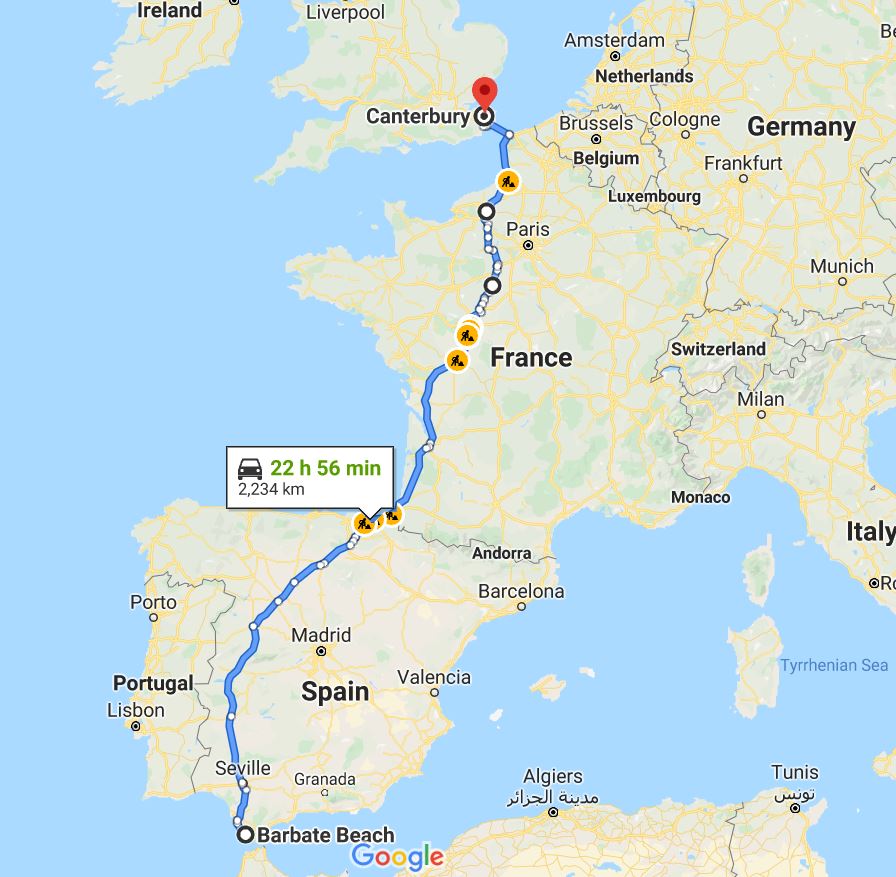
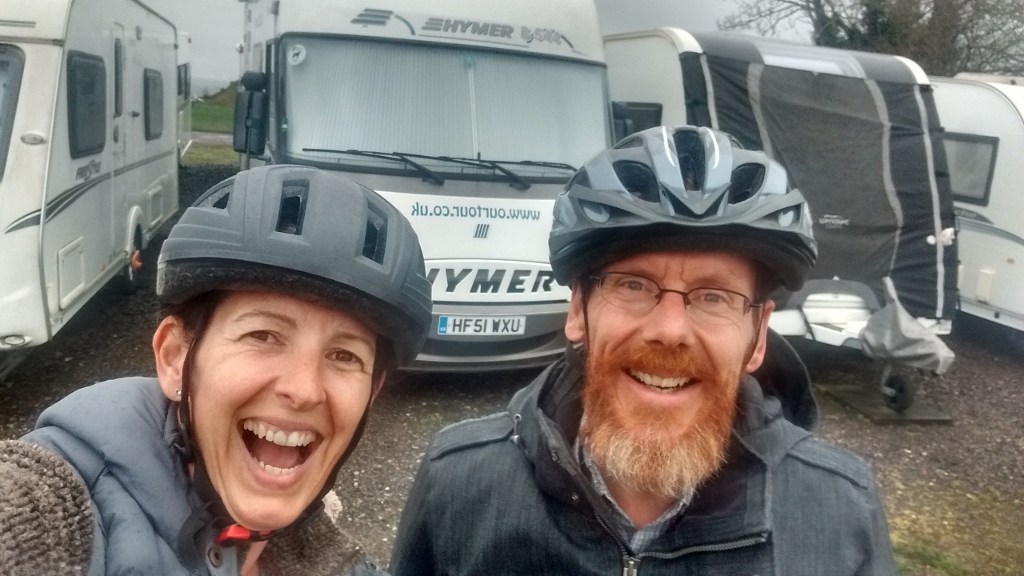
Looking back at that first time we returned back in March 2020, it felt chaotic in the UK. The streets were full and pubs doing a brisk business as we drove home (the UK went into lockdown a few days later). There was no requirement to quarantine even, and we got the odd raised eyebrow when we locked ourselves in for 14 days as though we were over-egging the whole thing (that turned out to be absolutely the right thing to do). This time around we’ll each take 3 COVID tests before we’re ‘allowed out’, complete a tracking form and have to isolate by law for at least 10 days. Word is official phone calls and even police visits are being used to enforce quarantine. Other than our sense of freedom we don’t have anything which pushes us to break the law – no jobs to go to, no dog to walk, and no kids to get to school – so we’ve no problem with another 10 days locked in behind our gates. However it does mean it’s an extra 10 days before we can see family and friends, that will be the hard part.
Nomadland
You might have heard of the acclaimed film Nomadland, a fiction directed by Chloé Zhao, based on the non-fiction book written by Jessica Bruder. We both read the book last year and were reminded of it by an email from some friends who also have a motorhome, and by Kevin and Ruth who watched it recently. It’s been a while since I read it, and I’m working from my sieve-like memory, so please excuse anything I’ve gotten wrong. My sense from the book was similar to Kevin and Ruth’s: one of sadness. The writer followed a group of modern-day nomads in North America, focussing on a subset who were forced into living in caravans, vans, RVs and even cars by financial need, effectively driven into poverty by divorce or healthcare bills, or having lost their houses and jobs after the 2008 Great Recession.
Many of the protagonists seemed to hitch their fate to ‘the economy’, some were shocked when house prices fell for example, somehow they’d been led to expect their homes would steadily increase in value. Some lost large amounts invested in shares, through their pensions for example. This saddens me personally, as these kinds of market dips are entirely normal in our capitalist world, and I sensed with more financial education many of the forced nomads in the book would have flourished. I can’t recall the author making any mention of this possibility, that folks who might befall a similar fate in future could prepare themselves better for it, rather than relying on ‘the uncaring economy’ and hoping for the best.
The unlucky folks in the book were subsequently preyed upon by the ‘gig economy’, forced into working under poor conditions for relatively little money and no job security. The writer talked a lot about Camperforce, an initiative by Amazon to recruit thousands of seasonable semi-retired/unable-to-retire motorhomers in their massive distribution warehouses. The work sounded hard (as warehouse/factory work tends to be from my distant memory of it) and the pay low, and not something I’d relish in my 60s or 70s. The book had an uplifting element to it too, illustrating how the people involved refused to give up and supported one another through virtual and physical meet-ups (sometimes thousands of RVs would come together). I get the sense the film might have shone a brighter light on this aspect than the book.
Having spent the past decade (on and off) travelling Europe in motorhomes, and not having needed to work while we travelled, I’m probably not in the best position to see how the book translates to nomadic life on this continent. Maybe the equivalent over this side of the pond is the ‘vanlife’ movement. Vanlifers are a subset of motorhome travellers who mostly use panel vans, sometimes self-converted, and who tend to travel on a shoestring budget and stay away from campsites and paid aires, epitomised by folks like vandogtraveller perhaps? Although thinking about it, this group tend to be very internet-savvy, earning money from vlogging, writing books and other ‘digital nomad’ efforts, few of them seem to be ‘retirement age’. So maybe these guys are a bad example, and there simply is no large-scale equivalent of aged nomadic van-dwellers in Europe.
What does this all say about America I wonder? I think that’s the point of the book, to ask the question why large numbers of people are being forced into a lifestyle they have to endure, whereas almost everyone we meet living this way embraces it.
Lithium Batteries
Lithium batteries (LiFePO4) seem to be cropping up everywhere at the moment, ever since our neighbours chatted with us about their plans for swapping their lead-acid batteries for them. Darran, of The Urban Motorhome fame, recently had Lithium Iron fitted by Oaktree Motorhomes, only a mile or so from where we live in the UK (dealer website), and the latest edition of the free The Motorhome Fun Magazine has two good articles about them.
They’re an interesting prospect these batteries. They seem to be the future for motorhomes, a much better technology than the lead-acid ones almost all of us currently use as leisure/deep-cycle batteries. They’re lighter (about half the weight so use up less payload), last longer (up to ten times longer), can be charged/discharged more quickly and stay charged for longer when not being used. They can also be regularly discharged down to 90% of their capacity, whereas lead-acid ones don’t take kindly to be taken below 50%, so you effectively double your capacity with Lithium Iron.
What’s not to like? Well, two things are a tad unpalatable for me personally:
- They’re rather expensive. A 100Ah Ecotree Lithium battery currently costs £699. A lead-acid equivalent can be had for £99 or less. If the Lithium lasted ten times longer, then we’d be quids-in, as long we don’t sell the van first, then it’s questionable how much extra we’d get for it with Lithium fitted.
- We can’t just swap between the two technology batteries. The charge controllers for the solar panel, mains hook-up and engine (alternator/split-relay) would all need to be replaced. Also the batteries can’t be charged in freezing conditions and need a battery management system (BMS) to prevent this (some Lithium batteries have a BMS built-in, like the Ecotree ones mentioned above). Newer vans might already be geared up for Lithium, with a battery-to-battery charger for example, instead of a split-relay system, allowing for better engine charging, but ours would need a fair bit of kit replacing.
If we were spending a lot of time off-grid, especially during a UK winter when solar PV gains will be low, and if we weren’t driving very far to get much charge from the engine, Lithium starts to make financial sense to me. There isn’t just the financial aspect to all of this of course, there’s pure convenience and, shock horror, even the fun of getting new technology. With a Lithium system we’d (probably) spend far less time prodding the ‘voltage’ indicator in Zagan, and might even upsize our 300W inverter to a 1KW one and start using more mains equipment while off-grid, our Remoska, a mains slow-cooker, coffee machine and a blender maybe. For the time being, especially while we’re spending long periods on campsites, we don’t need Lithium, but it’s something we’ll keep an eye on in future.
Thoughts of Home
Our ferry from Santander is booked for 31 March 2021, the last day we can legally be in Schengen. Ju has booked our COVID-19 antigen tests for a couple of days beforehand at a clinic in Santander, and we should get the results within a few hours. We need to book our UK test kits before we board the boat, which we’ll do in the next few days as we need info from these to complete our Passenger Locator Forms. As things stand, it’s looking unlikely Spain will get added to the UK’s ‘red list’ of countries which require mandatory hotel quarantine, so we’ll probably be isolating at home. Stuart, who was also staying on the site here in Nerja, recently did the journey home, staying at a couple of aires on the way north through Spain. He reported seeing very few other motorhomes and had the aires to himself, and the process has worked smoothly for him so we’re hopeful we’ll have the same experience.
We’re also hopeful the vaccination programme will open up to our age group (we’re both 48) as soon as possible, so we can get our first jabs and start to build some immunity.
All being well, the UK will go to Step 2 in the lockdown easing roadmap on 12 April, around the time we come out of quarantine. This will see the campsites and pubs (outdoors only) re-open, as well as gyms, shops and libraries. Small gatherings (maximum of 6 people or two households) will have already been allowed from 29 March, again all being well, allowing us to see our friends and families outside. Hopefully our running club will have restarted the small group outdoor sessions they created last summer, so we’ll be able to exercise with our clubmates again.
Although life here in Nerja has been good to us this winter, we’re looking forward to coming home. We drove here almost five months ago. Although we came home for a few weeks after mum’s death, this is by far the longest we’ve stayed still at one location. Nerja has proved everything we’d hoped for, with the combination of sea views, open-air restaurants, mountain walks and hikes, the pueblo blanco of Frigiliana and the cracking climate. New Zealand aside, this is probably one of the best places we could have been in winter 2020-21, but spring’s on its way and we’re ready to head for home. From past experience, the sudden immersion in clouds and cold air is a shock to the system, but we quickly get used to it and relish the (albeit initially constrained) contact we can have with people at home.
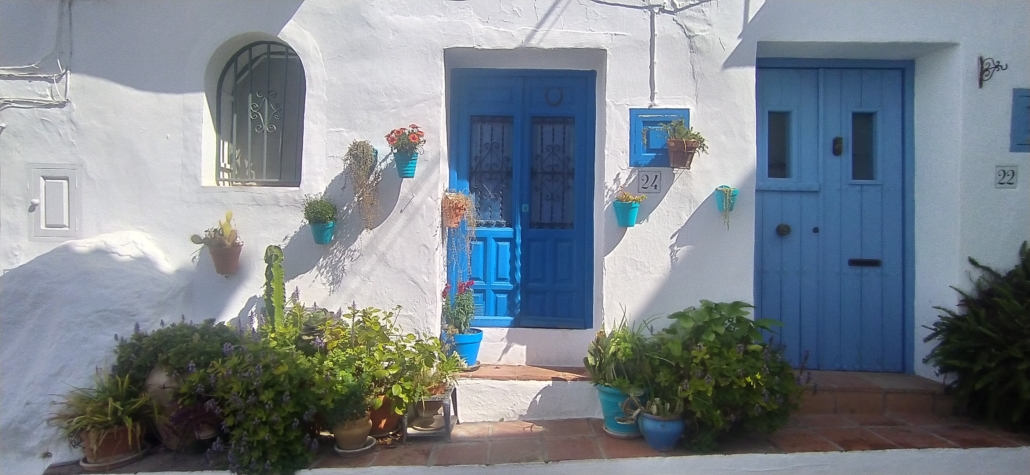
And in other news…
We’ve had a decent amount of rain recently (for Nerja, it’s been practically summer weather compared to back home) and water pooled on the van roof leading to a drip from our main skylight winder handle. I’ve been up on the roof to have a look at the skylight to try and spot why/where it’s leaking. It looks like the mastic (almost 20 years old now) has ceased to be masticy enough, and is allowing water to get past it either around the surround or at the point the winder pops through the roof. I’ve had a crack at a silicon field repair, but the edge of the surround isn’t really accessible along two sides and around the winder, and the whole thing needs to come off, be cleaned up and resealed. We’re nervous about doing that here, in case we break something and can’t get a part in time for our return. Instead we’ll get the van on a slight slope for when it rains so water doesn’t pool on the roof. We’ll then get the mastic, alcohol cleaning wipes and other bits and bobs when we’re back home and take our time doing the job after we’ve quarantined. The fridge, on the other hand, seems to have started working fine on gas. We did a test for a few hours and it stayed lit, so we’ll test it again before we leave here and hope for the best.
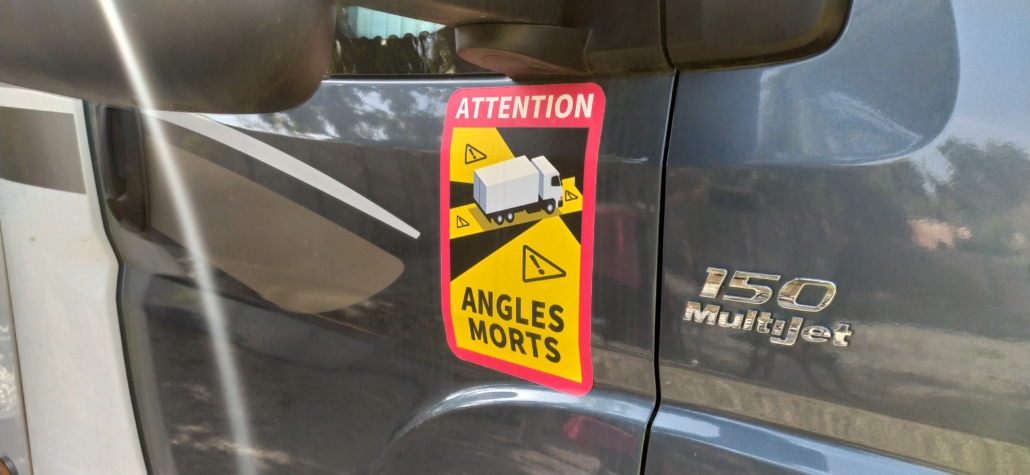
We had a walk up to Frigiliana last Wednesday and as our favourite restaurant is closed mid-week, we nipped into another one which looked like a local’s place and advertised having menu del dia, Spain’s low-cost daytime three course meal. No price was given and the menu was read out then handed over as this hand-written note below, so we had a bit of a guess at what we’d have.
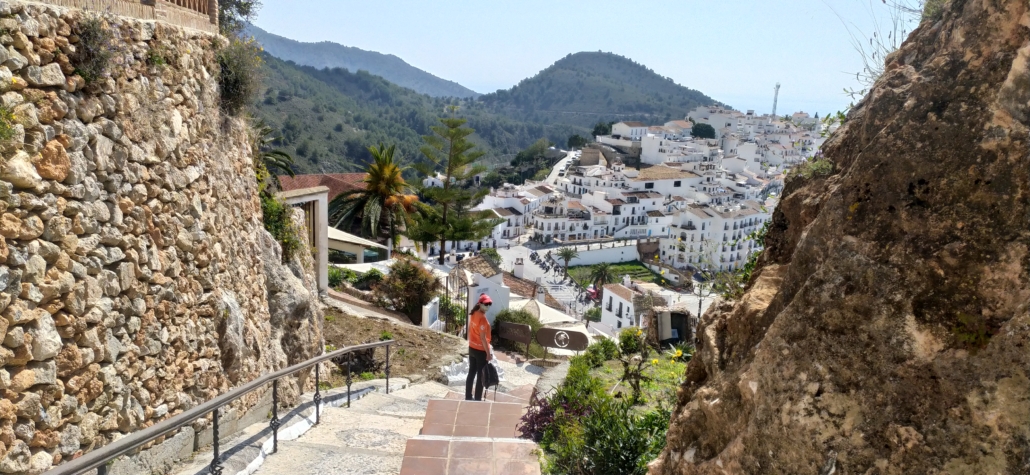
I got lucky, Ju not so much. The starters were both good, goat’s cheese salad for Ju and a sort of baked egg-ham-olive oil-vegetable concoction for me. The ‘main’ course for Ju turned out to to be pig’s knuckle. This is absolutely delicious when cooked Bavarian-style, baked into crackling. Not so good Spanish style it turns out, when you just get a pile of soft fat with bones in it. All attempts to locate meat failed, and the waiter smiled knowingly when he retrieved the plate, the knuckle weighing exactly the same as when it had arrive, just more spread out. Pudding was a kind of gritty custard, no choice for that one, they just arrived, but tasted much better than my description. The total cost including a few soft drinks was about €25, so we’re not complaining. At least I’m not, my main was pork slices and chips, completely fat-free other than the oil used to fry the spuds.
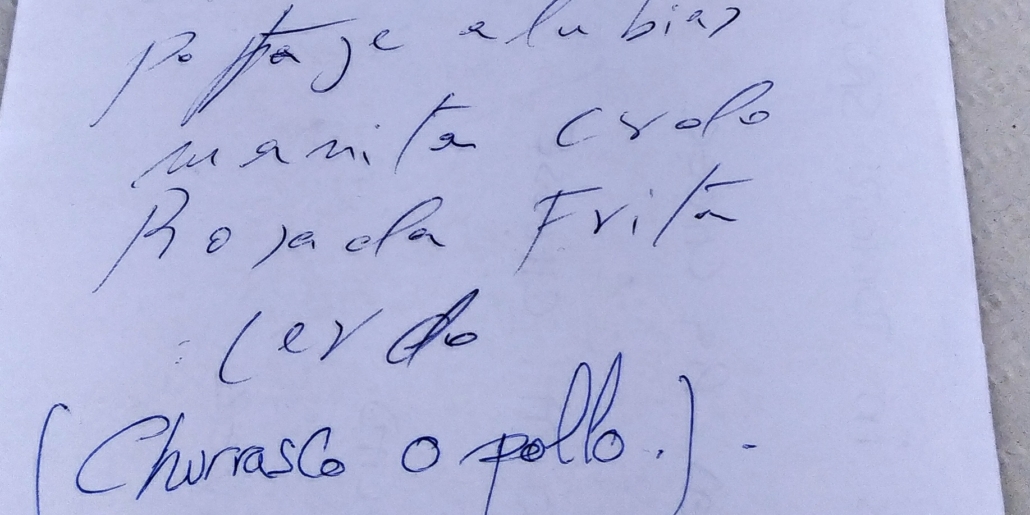
Cheers, Jay

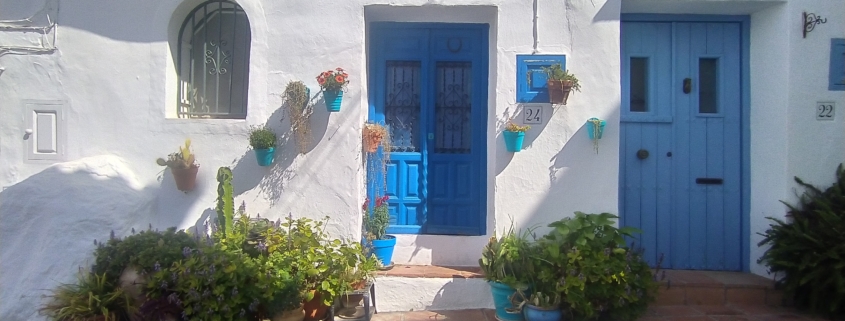
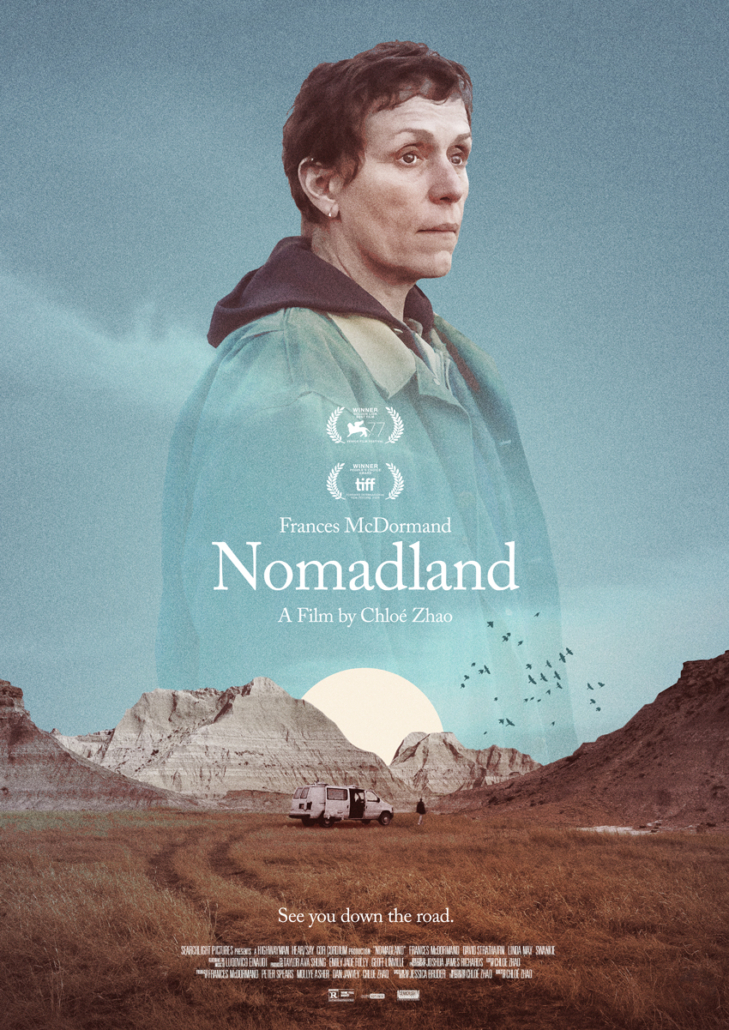
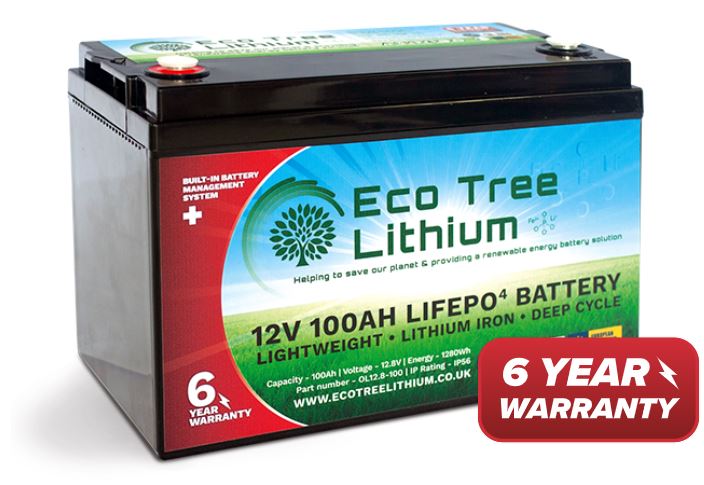
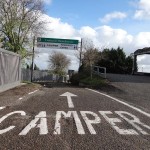

Enjoy the rest of the sunshine as you prepare to head home. No sign of our vaccine dates yet here in Wales (we’re 56 and 57), but hopefully next month we’ll have our first jab.
Yesterday we moved to ‘stay local’, which meant we could drive the 3 miles to our nearest beach at Llanddwyn, our first visit since before Christmas. I’m convinced Salty – our Patterdale Terrier – had a grin on his face as he zoomed between the waves and the dunes! He certainly slept while last night.
Stay safe.
Paul
Cheers Paul, I imagine that 3 months would have felt like years to Salty, he must have been absolutely buzzing!!! Good luck with the jabs, fingers crossed for you guys. 👍🤞 Jay
Folks, If not already articulated (I can’t recall), would you be able to describe in more detail how you went about booking ‘COVID-19 antigen tests beforehand’ (at a clinic in Santander, for example), and also booking UK test kits before boarding? Was it internet research, cold calling, other referrals etc? Thanks so much. Looking forward to the next instalment of the route back through Spain/France. All the best.
Hi Nigel
We haven’t booked the tests for the UK yet, we’ll do that once we have our antigen results and know we are definitely getting the ferry.
For the antigen tests, I have been messaging folks on a couple of motorhome Facebook groups who have recently done the trip to get advice and feedback. It seems the main place for the tests in Santander is Megalab Medicantabria at 10 calle castilla. You can book the test online through their website for €50 each or book via the savia website €40 each (both come up in the list if you search for antigen test santander). We opted to book through savia, then needed to contact the clinic to for an appointment day and time. I emailed the clinic using Google translate and they responded within the hour with a slot for us. We take our booking references from savia with us and fingers crossed it should all be pretty straightforward.
We’ll be sure to update with more details as we go.
Cheers Julie
Hi Guys,
We have a similar van to yours (2004 B584) and the roof light started leaking on our last trip to Sicily and Greece 2019.
Thought it might have been the very bumpy roads down there but probably just old sealant right enough.
Straightforward fix and none of the water had penetrated the sandwich style panel around the roof light. The spring washers (push on star washer things) which hold the pins on the hinges in place don’t come off in one piece really so get some before you take it off (got a pack of 10 x 7mm for £1.89 on eBay) Aside from that it’s easy to strip down from inside the van once the window is off. I used a mastic sealing strip (19mm x 5m x 2.5mm made by W4) which costs about £10 and then put it all back together. Worked well and not a drop of water since. Enjoyed today’s post, keep it up and best of luck for return journey.
Cheers,
Gordon
Great info, many thanks Gordon. 👍👍👍
Nomadland is alive and well in the UK. It surprised me, since like you, we chose to achieve financial independence and travel and most people we know are the same.
While we have been working on our truck with a long-term vanlifer, we have met a whole community of people whom we didn’t know about. All have somehow fallen off the edge of society through mental health issues, unemployment or marital breakups. The problem is that once you fall off the edge, it’s difficult to climb back on.
It’s not all bad news; many are happy with their lifestyle. I was inspired when a man living in an estate car with his dog told me he was a king, because he was free!
Nevertheless, it was an eye opener to see how many people live like this in our small town on the south coast of England in 2021.
Thanks Jackie. We read ‘The Salt Path’ a few weeks ago which cast a new light on homelessness in the UK, they’d have killed for a van to live in at their lowest point. The couple in the book have since managed to claw their way back up to a decent quality of living as far as I can tell, good for them 👍. I’ve had the shock and fear of failing mental health – I wasn’t able to do the job any longer at the point we quit and started travelling and sensed I might lose everything – there but for the grace of God go I. Thanks for getting in touch, it’s curious how much I manage not to see, even among the population of people living an outwardly similar way to me. Jay 👍
It was a revelation to us too, Jay, that there are so many people living on the edge.
I was humbled when I read The Salt Path – I used to joke that we were homeless. We rented out our home to fund our travels, but it gives us an income and it’s still there to fall back on. I am delighted that Ray and Moth have improved their situation; their story broke my heart.
I don’t think you’re alone in your dicings with The Black Dog. That certainly is a common thread that we have found among many others following our chosen lifestyle. We had to find a solution to life after redundancy because we were simply too ill to go back to work. You did the right thing by stepping off the treadmill before it was too late!
Happy and safe journey back to the UK. xx
Had my jab just over a week ago when opened to over 55s. You’ll be straight in for your jab I’m sure. Suggestion in press yesterday was we have lots of additional jabs coming on board next few weeks and all over 40’s should get an offer of a jab before Easter. Next month no bottleneck on supply but capacity to deliver. More good news. Freedom just round the corner
Fantastic, thanks David. 👍👍👍
Steven and I really enjoyed Nomadland, both as a story and because we are so familiar with the places and experiences of the lifestyle. It’s true that there is a contingent of folks who are not out there not necessarily by choice, but have made the best of a sad situation. Others, regardless of their financial situation, love the lifestyle. Even though we are retired, we have worked two holiday seasons with CamperForce at an Amazon Fulfillment Center in Campbellsville, Kentucky. The first time we did it for the experience, the second because we had friends who were doing it and we wanted to spend some time together. It’s more boring than anything else, but we’d probably do it again someday. :)
Bonjour Les Chouters, ca va? We’ll watch the film when we get the chance and get another perspective on the story. My impression from the book was the author wanted to portray Amazon as predatory but as you guys volunteered twice, either I got that wrong or they’re not as bad as all that? We’ve only ever met people in vans who wanted to be there, as far as I can remember/could tell. Even the guy living in his Citroen Berlingo was living life, almost like he found a secret key and unlocked another world. As others have said, there are folks forced into caravans, cars and vans through circumstance in Europe, but I guess we just don’t go where they are so we never see them. Good to hear from you, here’s hoping your plans for 2021 come good. 🤞❤️👍 Jay
“What does this all say about America I wonder? I think that’s the point of the book, to ask the question why large numbers of people are being forced into a lifestyle they have to endure, whereas almost everyone we meet living this way embraces it.”
One group lives in campers by choice, the other through force of circumstance rarely of their choice.
As mentioned above some who are driven into a basic nomadic life embrace their new freedom which is something they may never have had before, possibly the majority endure poverty as best they can as there are no options, some may even have a smile on their face.
It’s not just a question as to why for America, it happens in other places too.
In the UK homeless people call themselves ‘The invisible ones’ they are hiding in plain sight.
BTW, the professional camper/caravan non-setting mastic sealant is IDL, or at least it used to be.
Yep, poverty and homelessness are clearly right there, hidden in plain sight. Again, there but for the grace of God go I.
I was a little sad the author didn’t question the seemingly ubiquitous assumption that ‘the economy’ would always remain strong. In a few cases in the book, the people forced into vans/cars might have been fine if they’d waited for their house/pension to recover after the great recession. Some seemed to have kept their jobs/businesses and could have paid their mortgage or worked a few more years until the equity markets came back up. They didn’t though, which locked in their losses and sealed an uncertain nomadic future.
I’m judging no-one. There’s a case for a greater financial education across the world, that’s all. There’s also a case for better government social systems and universal healthcare too of course.
Cheers, Jay
Hi have a good trip home we too are interested to know how the test works in Santendar please keep us posted.In Yorkshire a relative who is 49 got the jab on Sat. so you will be just right.Best Wishes to you both.
Thanks Chris and Cliff. We’ll pop an update on the blog once we’ve had the tests detailing the process up at Santander. Cheers, Jay
Hi guys,
We are now in a long term rental in beautiful North Norfolk, with a rough plan to explore the UK this year.
On the subject of homelessness, we now volunteer a couple of times a week, helping to prepare food and distribute it on the streets of Norwich (allowed under covid rules). We have been shocked by the numbers living rough. In fairness, we also feed a number who have shelter, but live in sheer poverty – our policy is that nobody has to prove their poverty, if you turn up, we feed you. Generally at least 45 a night, occasionally up to 60 people. The saddest of all are the youngsters – far too many of them. Yes, a lot of addicts, but we don’t judge….In their shoes, I would probably go for a shot of heroin, who knows?
Safe journey. Xxx
Good to hear from you guys! Glad you have a base and a plan and it sounds like you’re doing some great work there, respect. Cheers, Jay
Hi Both – I am currently writing a book about our truck build and vanlife, and wondered if you would mind me quoting you on Vanlife in Europe? I will, of course, credit you! Thanks xx
Of course Jackie, quote away and best of luck with the book! Jay